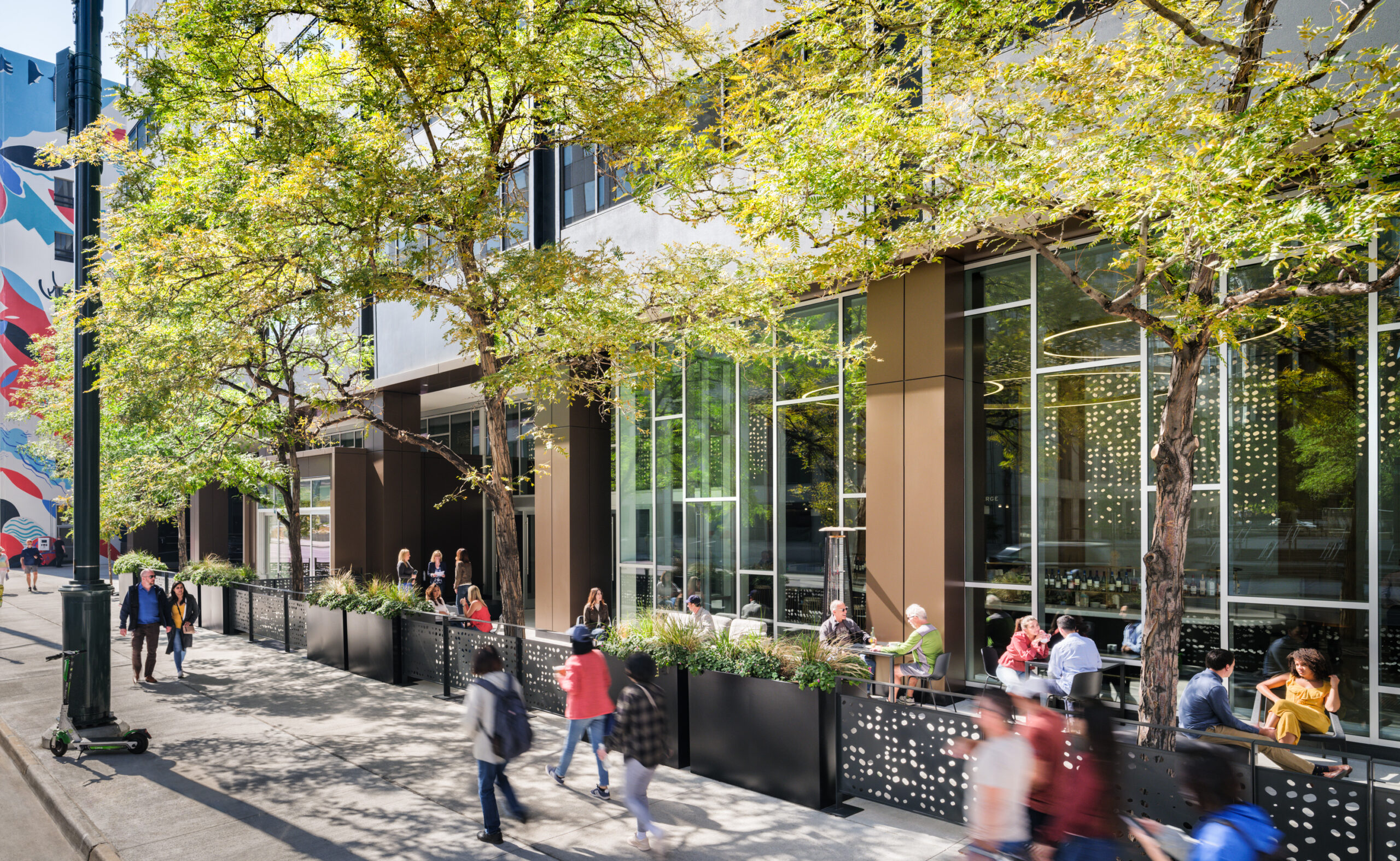With offices finally coming back to life after a two-year pause for COVID-19, commercial landlords are investing in
technology to help tenants draw their employees back to the workplace. The 410, a SteelWave property located in the heart of Denver’s Upper Downtown, is a prime example. SteelWave recently implemented a workplace experience technology platform (powered by HqO) to address the evolving needs of businesses and their employees. The goal is to make the office a place where people actually want to be, not a place they have to be.
Most 410 tenants have reopened their offices with hybrid schedules combining remote and on-site work, said Peter Llorente, senior managing director at SteelWave. The HqO platform is invaluable in helping them manage the logistics. SteelWave uses the platform for building tenants to integrate mobile access credentials and visitor registrations so that 410 tenants can email guests a QR code for easy access when they arrive.
To make the office more appealing to employees, the app facilitates an array of amenities. “Using the HqO app, tenants can order and pay for a coffee from our lobby coffee bar,” Llorente said. “They can reserve a conference room, access the fitness center, bike room and parking garage with just a few clicks.”
Building work orders are processed through the HqO app as well. The technology makes it easy to communicate with the building’s occupants, which is especially important nowadays. Businesses can update everyone about air quality and cleaning procedures, as well as COVID-19 exposures and resulting shutdowns.
The app can also help in building a sense of community. Companies can inform their people about all the available amenities and services, get them involved, and provide information on local restaurants, businesses, and transportation options. “Word travels fast throughout the building when tenants win a gift for downloading the app and using it to find information,” Llorente said.
Such capabilities are increasingly important as employers vie for talent in a tight marketplace. According to Lauren Mead, HqO’s vice president of marketing, that competition has sparked an “amenity war.” She notes, “There’s no one-size-fits-all solution, but landlords can help their tenants devise a strategy. It entails leveraging data on employee utilization and preferences so that they can then invest in the right resources. It’s a proactive pulse check that indicates exactly what the people in your building want, so the landlord can match it.”
For instance, solution data might show that larger conference rooms are regularly booked while smaller ones remain unused, prompting a company to combine two small rooms into one bigger space. HqO users in other buildings have added capabilities such as pop-up manicures, dry cleaning pickup, and food delivery from local restaurants—a seamless experience through a single app. The possibilities are virtually limitless. Llorente believes the HqO platform will drive SteelWave’s return on investment.
“We’ve been able to post so much information, along with links to documents for tenants to use within the app, that it’s become a great resource for existing tenants. It also offers an effective place for our brokers to demo to prospects. Further, our current tenant mix skews towards financial and legal services. This not only enables us to better meet their needs, it gives us an edge in expanding our mix. Technology firms and other businesses will particularly like the location, security, and amenities the 410 offers. And the talent they’re trying to attract, and keep, will too.”









